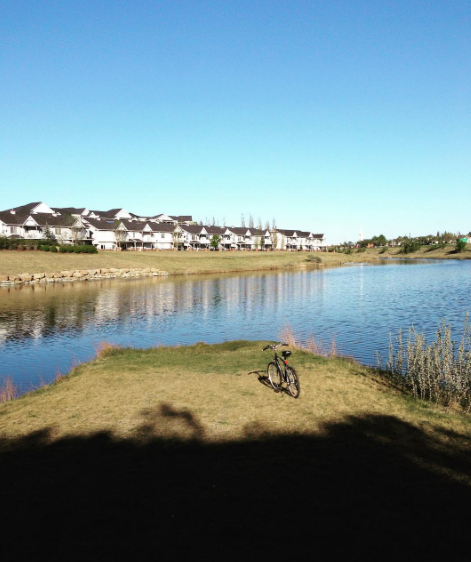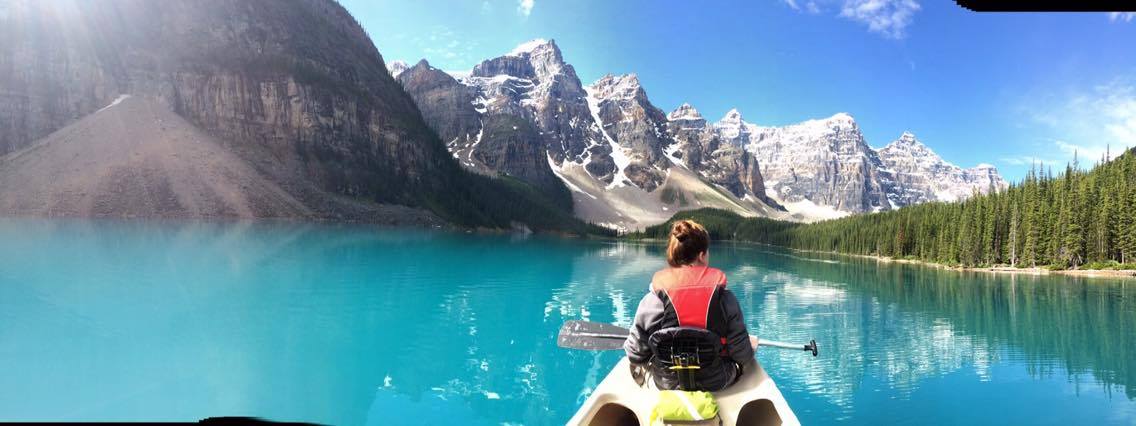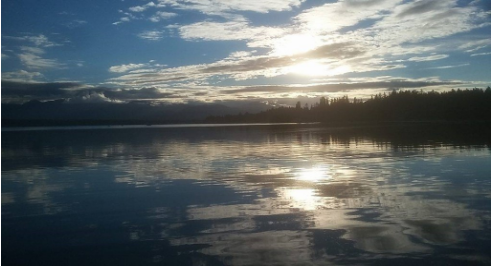By Hana Mason
I am part of the ‘tech generation’ – born and bred at the turning point of computer technology. I remember the changes—from playing reading games on my parent’s huge Microsoft computer to getting my first iPod Nano, from flip phones to larger-than-life smartphones. There seems to be a belief that because my generation grew up with technology, we are tied eternally and unconditionally to our phones. If you ask any of us, we’ll most likely deny such allegations, but I wonder what the real answer is. Have we abandoned our exploratory roots of our surrounding environment? Or have our relationships with our environment changed with the development of technology?
I will be the first to admit many of my day-to-day choices revolve around whether or not it’ll make a good Instagram! But I also believe that even if some part of me is drawn to a hike just for the photo of the view, some other, deeper part of me is drawn to it for the view itself—for the experience. You see, my peers and I still experience a strong connection to nature. From camping and visiting family cabins to summer camps and visits to community lakes, we’re never so tied to the world of the internet that we don’t have a call to the wild.

Image courtesy of myself (my favourite place to ride my bike!)
In considering my time on and off the internet, I realize—despite my avid belief that my generation’s obsession isn’t entirely encompassing—I haven’t had many discussions with my peers about water-related, or even simply environment-related, issues.
The last time I learned anything new about water conservation was my last field trip to a wetland, which was probably six or seven years ago. So, I decided to ask my friends about water.
What are your connections to water? What do you know about water issues? What does water mean to you? Before I reached out to my friends, I asked myself these questions. I’m going to be completely honest – I know almost nothing about water issues. But I do have a connection to my environment. My personal water story has been mainly to do with summer camp. I learned to canoe at camp. I learned teamwork, determination, and an appreciation for natural rivers and lakes. Besides that, spending endless summer hours by the lake have kept me always looking from my screen back to nature, whether it is in search of the perfect profile picture or a way to satisfy my nostalgia.
As for my friends and peers’ responses to my water questions, I received varied, but passionate, results.
Emily F. grew up on the east coast, but once she moved west, she found a love of kayaking and canoeing. Exploring the Alberta wilderness, whether it be paddling or hiking, has become a huge part of her life. “It’s a really nice break,” she tells me, “I’m not really thinking about the things I’m supposed to be worrying about here.”

Image courtesy of Emily F. (from one of her many adventures)
The stress of school, work and social life can be overwhelming, particularly in our constantly connected world. That being said, Emily finds the social media platforms she’s a part of let her connect with other hiking and paddling enthusiasts. This makes it easier to find trails and rivers to visit. Despite this however, she finds herself uninformed about water and environmental issues and literacy. “I’m not oblivious, but I feel like there’s information missing” she says, rating her water literacy a six out of ten.
Kate S. also grew up around water. She spent most of her early life in Toronto, and the vast difference between the concrete jungle and the spread-out landscape of Calgary, where her backyard is a community lake, has come to be very important to her.
“We’ve been so blessed, not everywhere is like this,” she tells me. However, Kate has mixed feelings towards the affects of social media on her experience with the environment. She tells me she finds people to be too connected and that certain technologies allow people to never leave their houses. On the other hand, she finds the Instagram trends of fun hikes and great views create an environment where we are socially rewarded for going outside.
I ask her what she knows about water-related issues. In a similar response to Emily and myself, the answer is very little. It seems my generation knows the basics for water conservation – don’t let the water run when you’re brushing your teeth, take shorter showers – but we don’t really comprehend the scope.
“Because I don’t really see the first hand affects,” Kate explains, “it doesn’t really resonate.” This seems to be a popular explanation for our relative apathy – we have such easy, thoughtless access to clean water here in Alberta that we can’t even imagine what life would be like if it became unavailable. We view water scarcity as a far-away thing for developing countries, not for ourselves. Why would it resonate?
Much like my other two interviewees, Drew R. grew up loving water and hanging out in nature. He loves swimming and boasts, “I could swim before I could walk!” But after a traumatic experience last year and a growing love for social media, Drew spends considerably less time outdoors, and much less time swimming. Despite this, he explains that technology has allowed him to learn a lot more about bodies of water far away from where he lives. He has entertained the thought, “Since I don’t live anywhere near an ocean it’s not really the kind of thing I need to worry about”, but he rates his water literacy a seven out of ten, and he wants to learn about pollution, water filtration, and how to “help and do my part to keep our water safe and clean.”

Image courtesy of Drew R. (“my favourite” he calls it)
I set out to prove something with this blog—that my generation isn’t entirely tied to our phones, and that we have a deep rooted connection to our environments. With so many different perspectives and views, the only thing I could really prove was my generation has opinions. Like other generations, everyone I talked to had something to say.
At the end of it all, I think I can sincerely say my generation still cares about our environment, and we’re trying our best to use the advanced technology we’ve been given to our advantage. With the evolution of technology, our relationships with our environment, and the issues pertaining to it, will change too. The challenge is finding a way to make the pressing issues matter to us. We already care, now we must find that deeper resonance.
Hana is a summer student with the Alberta WaterPortal Society. In her spare time she enjoys reading, writing, and spending time with friends. She will be moving to Victoria, B.C. to study Writing at the University of Victoria in September 2016.
